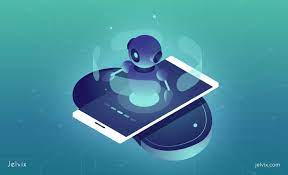The Rise of Artificial Intelligence Assistants: Transforming Daily Life
Artificial intelligence assistants have become an integral part of modern life, revolutionizing the way people interact with technology. From managing daily schedules to controlling smart home devices, AI assistants like Siri, Alexa, and Google Assistant are changing the landscape of personal and professional environments.
What Are AI Assistants?
AI assistants are software applications that use artificial intelligence to perform tasks or services based on commands or questions. These virtual assistants can interpret human speech and respond in natural language, making them user-friendly and accessible to a broad audience.
Key Features and Functions
- Voice Recognition: AI assistants can understand and process spoken language, allowing users to interact hands-free.
- Task Automation: From setting reminders to sending messages, AI assistants can automate routine tasks, saving time and effort.
- Smart Home Integration: Many AI assistants can connect with smart home devices, enabling users to control lighting, thermostats, and security systems through voice commands.
- Information Retrieval: Whether it’s checking the weather or finding a recipe, AI assistants provide quick access to information from the internet.
The Impact on Daily Life
The integration of AI assistants into daily routines has streamlined various activities. For instance, professionals use them for scheduling meetings and managing emails efficiently. In households, they serve as hubs for controlling smart devices and enhancing entertainment experiences by playing music or streaming videos on command.
The Future of AI Assistants
The future looks promising for AI assistants as technology continues to advance. Developments in machine learning and natural language processing are expected to enhance their capabilities further. This evolution will likely lead to more personalized interactions and improved context understanding.
Moreover, as privacy concerns grow, companies are focusing on making these systems more secure by implementing stronger data protection measures. Users can expect more transparent data usage policies and options for greater control over their personal information.
Conclusion
Artificial intelligence assistants have already made significant strides in transforming everyday life by offering convenience and efficiency. As technology progresses, these virtual companions will continue to evolve, offering even more sophisticated features that will further integrate them into both personal and professional spheres.
The ongoing development of AI technology promises exciting possibilities for the future of artificial intelligence assistants—making them smarter allies in navigating the complexities of modern life.
Top 5 FAQs About Creating and Using AI Personal Assistants
- How do I make a personal AI assistant?
- What does an AI assistant do?
- Is there an AI personal assistant yet?
- What is the best AI assistant?
- Is there a free AI personal assistant?
How do I make a personal AI assistant?
Creating a personal AI assistant involves several key steps, starting with defining the specific tasks and functionalities you want the assistant to perform. Begin by selecting a suitable programming language, such as Python, which is popular for AI development due to its extensive libraries and frameworks like TensorFlow and PyTorch. Next, choose a platform or framework that supports natural language processing (NLP), such as Google’s Dialogflow or Microsoft Bot Framework, to enable your assistant to understand and respond to human language. You’ll also need access to datasets for training your AI on various inputs and responses. Integrating APIs can enhance your assistant’s capabilities by allowing it to access external services like weather updates or calendar management. Finally, ensure your AI assistant is capable of learning from interactions through machine learning techniques, allowing it to improve over time based on user feedback and usage patterns.
What does an AI assistant do?
An AI assistant is a sophisticated software application designed to perform a wide range of tasks by processing natural language commands. These virtual assistants can manage daily schedules, send messages, set reminders, and provide quick access to information such as weather updates or news. They also integrate with smart home devices, allowing users to control lighting, thermostats, and security systems through simple voice commands. By leveraging advanced technologies like machine learning and natural language processing, AI assistants offer personalized interactions and automate routine tasks, making them invaluable tools for enhancing productivity and convenience in both personal and professional settings.
Is there an AI personal assistant yet?
Yes, AI personal assistants are already widely available and have become a common feature in many people’s lives. These AI-driven tools, such as Apple’s Siri, Amazon’s Alexa, Google Assistant, and Microsoft’s Cortana, are designed to help users with a variety of tasks through voice commands or text input. They can manage schedules, send messages, provide weather updates, play music, control smart home devices, and answer questions by retrieving information from the internet. As technology continues to advance, these assistants are becoming more sophisticated and capable of understanding context better and offering more personalized experiences. With ongoing improvements in natural language processing and machine learning, AI personal assistants are expected to become even more integrated into daily routines.
What is the best AI assistant?
Determining the “best” AI assistant largely depends on individual needs and preferences, as each assistant offers unique features and capabilities. Popular options include Apple’s Siri, Amazon’s Alexa, Google Assistant, and Microsoft’s Cortana. Siri is known for its seamless integration with Apple devices and user-friendly interface. Alexa excels in smart home compatibility, offering extensive control over a wide range of IoT devices. Google Assistant is praised for its robust search capabilities and natural language processing, making it highly effective at answering a diverse array of questions. Cortana, although less prominent in recent years, integrates well with Windows systems and offers productivity features tailored to Microsoft users. Ultimately, the best AI assistant for any user will depend on their specific requirements, preferred ecosystem, and desired level of functionality.
Is there a free AI personal assistant?
Yes, there are several free AI personal assistants available to users today. Popular options include Apple’s Siri, Google Assistant, and Amazon’s Alexa, all of which come integrated with their respective devices at no additional cost. These assistants offer a wide range of functionalities such as setting reminders, answering questions, managing schedules, and controlling smart home devices. Additionally, Microsoft’s Cortana is available for Windows users, providing yet another free option for those seeking assistance with everyday tasks. While these services are offered at no cost, it’s important to consider the privacy policies and data usage agreements associated with each platform to ensure they align with personal preferences.





